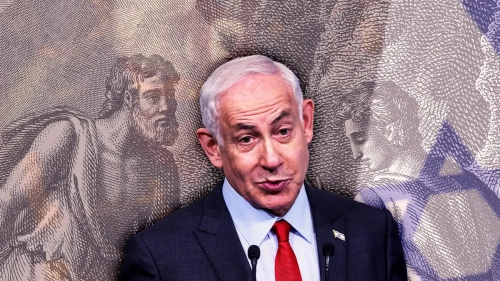Dark Money is Killing Open Debate and Free Elections

Twenty years ago when Congress passed the bipartisan McCain-Feingold bill on campaign finance reform , many celebrated what they hoped would be a new era in US politics. There were limits set for individual contributions and those of political action committees. All contributions in federal elections were to be reported to the Federal Election Commission and made available for public scrutiny. There was also a taxpayer fund established that would allow presidential candidates, if they wished, to secure matching funds for lower-level contributions to their campaigns, if they accepted a limit on their overall spending.
What we feared was that big money would ultimately find a way to subvert McCain-Feingold and once again insert itself into the electoral process. After the Supreme Court’s ruling in the Citizens United case found that money was a form of free speech and therefore its use in politics could not be limited, the floodgates were again opened to financial abuse of the electoral process. What followed were massive “independent expenditures” from both the left and right, by corporations and interest groups supporting or opposing campaigns. Groups representing banks, big pharma, women’s rights, the gun lobby and others spent millions to advance their interests. The funds they poured into campaigns—“dark money expenditures”— were considered private and therefore not subject to FEC reporting or public disclosure.
Supporters of Israel have a long history of bundling large contributions to support or oppose candidates. Before and after McCain-Feingold there were scores of pro-Israel PACs that would routinely bundle donations from PACs and individual donors, raising millions of dollars in each election cycle. As intimidating as their tactics may have been, the funds they raised were duly reported to the FEC and were available to the public.
This year is different. Fearful that Israel is losing support among Democrats, especially progressive Democrats, elements of the pro-Israel community have developed a number of “dark money” entities with the express purpose of defeating “progressive Democrats” even if those progressives haven’t yet been outspoken critics of Israel or Israeli policies. Interestingly, much of their expenditures haven’t been in support of candidates, but against those whom they oppose. And the massive costly advertising campaigns they have waged haven’t focused on Israel. They have been devoted to tearing down the reputations of the progressive candidates they want to see defeated.
This year, millions of dollars have been spent in efforts to smear and defeat candidates in Ohio, Pennsylvania, North Carolina, Texas, Maryland, and now Michigan and Missouri. Despite the obscene amounts spent, this effort operated without much notice until a few weeks ago, when a former Maryland congresswoman running to regain her seat was subjected to a $6,000,000 negative advertising blitz that sought to discredit her years of public service. As has been the case in a number of these races, the amount of funds expended by these pro-Israel groups exceeded the amounts raised by the campaigns they were opposing and/or supporting.
A few investigative reporters have succeeded in uncovering the sources of some of the funds, much of them coming from a handful of billionaires—from energy companies, investment firms, and high-tech industries. Many of the donors are Republicans who have found a way to advance a pro-Israel agenda by helping to defeat progressive Democrats.
This past week’s primaries featured four of these contests, three in Michigan and one in Missouri. In Michigan, a Palestinian American incumbent was targeted by more than $2,000,000; a Jewish American incumbent faced a barrage of negative advertising funded by in excess of $4,300,000—though he is pro-Israel, apparently he wasn’t pro-Israel enough; and an Indian American running for an open seat was confronted by an expenditure in excess of $4,200,000. In Missouri, an African American congresswoman, who rose to national prominence during the racial justice protests in Ferguson, Missouri, and in 2020 was able to unseat a long-standing pro-Israel member of Congress, was confronted with millions of dollars in negative advertising that sought to discredit her service to her district.
When the results were tabulated, “dark money” was defeated in three of these contests. They were only successful in defeating the Jewish American incumbent in Michigan. That’s what “dark money” can do.
Thus far, in 2022, the pro-Israel “dark money” groups and PACs have spent in excess of $30 million with a mixed record of wins and losses. But the real losers go beyond the candidates themselves—both those who’ve lost and the winners whose reputations have been tarnished. What’s at stake is the integrity and openness of our elections and the political process that can be so distorted by excessive amounts of “dark money.” The outcome of an election in a democracy shouldn’t go to the highest bidders, free to spend unlimited amounts to destroy someone deemed an opponent. Also at risk, and of equal importance, is the ability of candidates to freely debate a critical issue of importance without fear of having their political careers ended by a handful of big money donors willing to ruin their reputations if they dare to speak out.
Topics: Israel Lobby In The United States, United States Policy On Israel
Views: 510
Related Suggestions

















